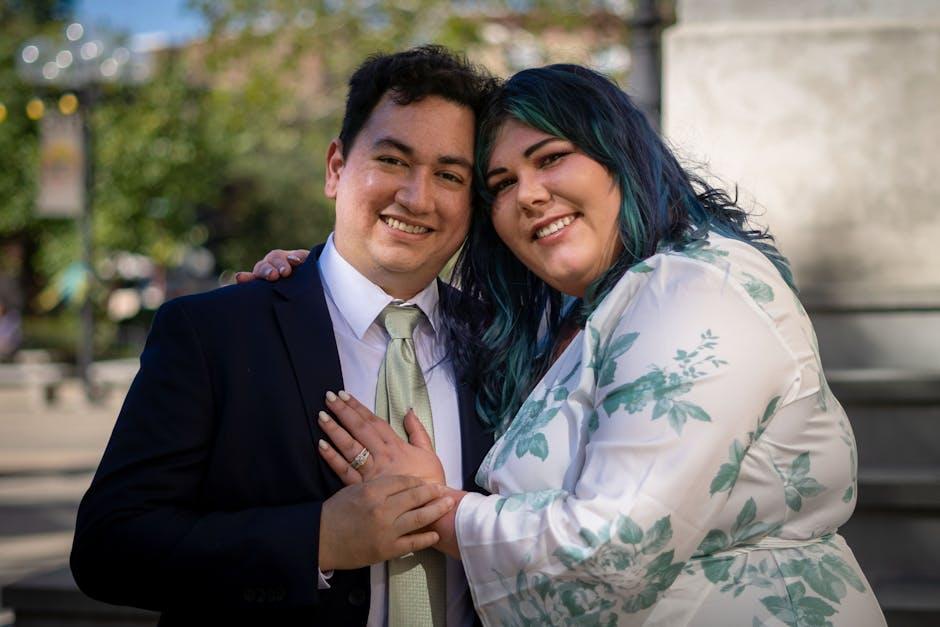In the intricate dance of relationships, we often find ourselves searching for that perfect harmony where our emotional needs are seamlessly met by our partners. But is it realistic to expect one person to fulfill every emotional facet of our lives? As we delve into this question, we uncover the layers of human connection, exploring whether the notion of a ”soulmate” meeting all our emotional desires is a romantic ideal or a potential recipe for disappointment. Join us on this journey as we navigate the complexities of love, dependency, and the pursuit of emotional fulfillment.
The Myth of the Perfect Partner: Unpacking Emotional Expectations
In the realm of relationships, the notion of a flawless partner often looms large. We might envision someone who effortlessly meets every emotional need, yet this expectation can be both unrealistic and burdensome. No single person can be everything to us, and holding on to this myth may lead to disappointment and strain. Instead of seeking perfection, consider embracing the imperfect beauty of a genuine connection.
- Acceptance of Imperfection: Understand that everyone has limitations, and perfection is an illusion.
- Diverse Support Systems: Cultivate a network of friends, family, and communities to fulfill different emotional needs.
- Open Communication: Discuss emotional needs openly with your partner, fostering a relationship built on mutual understanding.
By challenging the myth of the perfect partner, we allow ourselves to appreciate the unique strengths and quirks of our loved ones, paving the way for a more authentic and fulfilling relationship.
Navigating Emotional Landscapes: Understanding Needs in Relationships
In the intricate dance of relationships, understanding and addressing emotional needs can be both a journey and a challenge. While it might seem ideal for one partner to be the sole provider of emotional fulfillment, this expectation can often lead to disappointment. Instead, recognizing that emotional support can come from multiple sources can enhance relational harmony. Cultivating a diverse emotional support network—including friends, family, and personal interests—can enrich the emotional landscape of any relationship.
- Self-awareness: Knowing your own emotional needs helps in communicating them effectively.
- Open communication: Encourages a shared understanding and mutual support.
- Community support: Engaging with a wider circle can offer diverse perspectives and comfort.
By fostering a balanced approach to emotional needs, partners can nurture a relationship that thrives on mutual respect and understanding, rather than unrealistic expectations.

Building a Balanced Connection: Sharing Emotional Responsibilities
In the intricate dance of relationships, expecting a partner to single-handedly meet all your emotional needs can lead to imbalance. A healthy connection thrives on shared responsibilities, where both individuals actively participate in nurturing each other’s emotional well-being. This doesn’t mean dividing emotional tasks into rigid roles, but rather fostering a dynamic where empathy and understanding are mutual.
Consider these elements to build a more balanced emotional connection:
- Open Communication: Create a safe space for honest conversations about feelings and expectations.
- Empathy: Strive to understand your partner’s emotional landscape and offer support when needed.
- Self-Awareness: Recognize your own emotional needs and communicate them clearly.
- Shared Growth: Encourage personal and mutual growth, allowing both partners to evolve together.
By embracing these practices, couples can cultivate a partnership where emotional responsibilities are shared, not shouldered alone, paving the way for a more fulfilling and resilient relationship.

Fostering Emotional Independence: Strategies for Personal Growth
Achieving emotional independence is a journey that encourages personal growth and resilience. It’s about cultivating a strong sense of self and understanding that while partners can offer support and love, they cannot be the sole source of our emotional well-being. Here are some strategies to foster this independence:
- Self-Reflection: Regularly engage in introspection to understand your own emotional triggers and needs.
- Mindfulness Practices: Incorporate activities like meditation or journaling to enhance self-awareness and emotional regulation.
- Build a Support Network: Cultivate relationships with friends, family, or support groups to diversify your emotional support system.
- Set Boundaries: Clearly communicate your needs and limits to your partner, fostering mutual respect and understanding.
- Personal Interests: Pursue hobbies and activities that bring you joy and fulfillment outside of your relationship.
By embracing these strategies, individuals can nurture a balanced emotional landscape, allowing relationships to thrive without the burden of unrealistic expectations.




